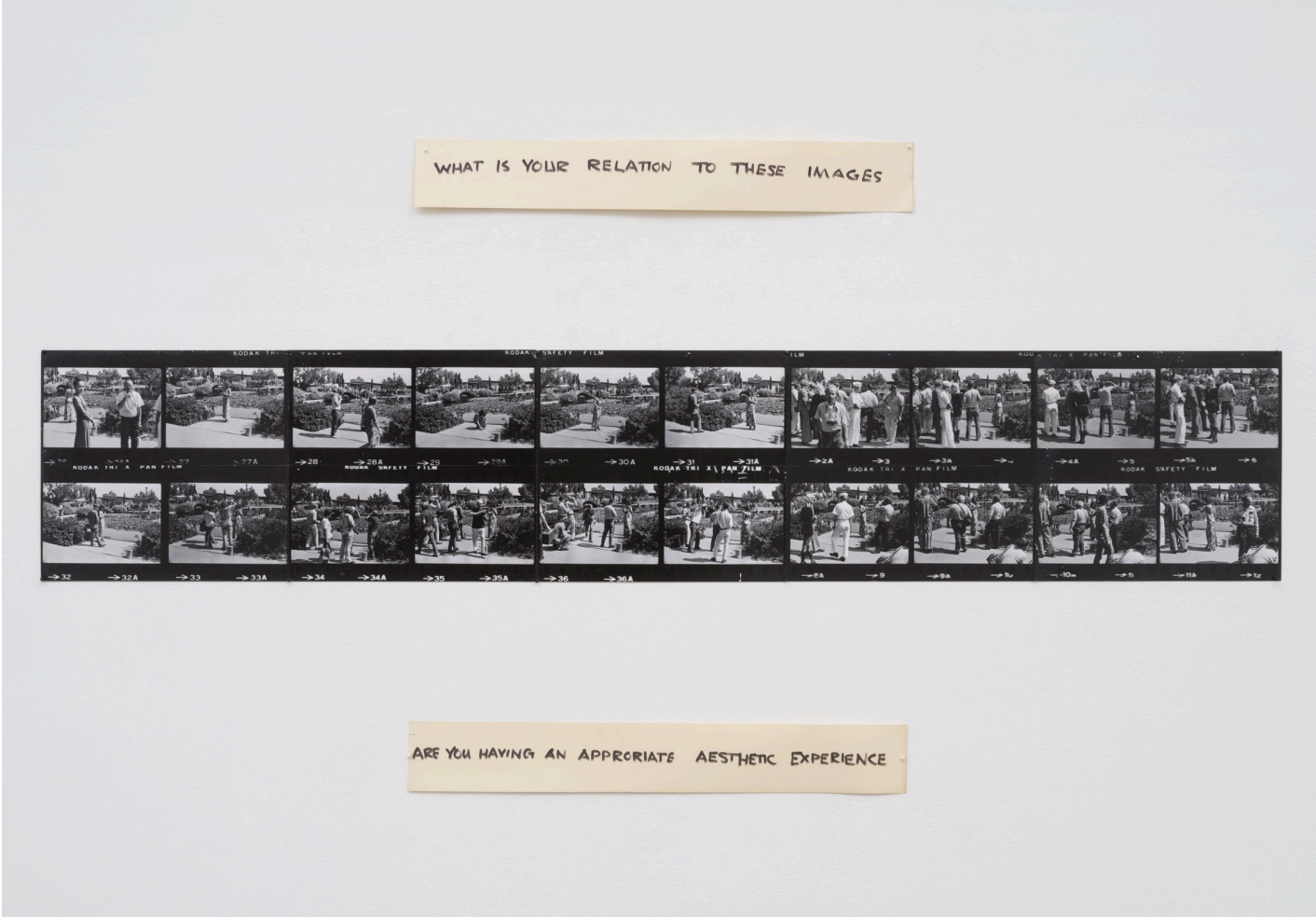When I look at Fred Lonidier’s show “Vacation Village Trade Show,” at Michael Benevento, my mind naturally goes to Antonioni’s Blow Up (1966). Much like Antonioni, whose film is about a photographer who inadvertently captures a murder, Lonidier is interested in the camera, and by extension the photographer, as a knowing entity, both a clarifier and obscurer of reality.
In “Vacation Village Trade Show,” Lonidier presents a sparse display of film strips paired with text. Scrawled on beige paper that sandwiches the images, the text above reads “What is your relation to these images,” while the one below asks “Are you having an appropriate aesthetic experience?” The trade show in question was an event in 1972 at a public garden in San Diego, where an entrance fee allowed amateur photographers access to models. Lonidier’s photos range from relatively banal and serene scenes of photographers in motion, examining their cameras, and milling around the park, to stark and nefarious shots of hordes of male photographers pointing their cameras at a bikini-clad model who poses and contorts on the grass.
An ardent leftist, Lonidier got his start documenting anti-Vietnam War protests, and the camera for him has always been a mirror, or perhaps a weapon. Less in the journalistic sense of documentation and more as a means of shielding from and bouncing back the elusive energy that is power relations. His work became trickier (a satisfying knotting) as he added layers of visual remove while maintaining his pointed political analysis. Expanding beyond the photographic image, Lonidier began to use text and performance-based gestures and staged shows in specific locales outside of a gallery context, all the while continuing to document the process. The images and text in his oeuvre, as well as “Vacation Village Trade Show,” depict a meta-photographic narrative. Lonidier is bumping lenses with his subjects.
In the Benevento office, advertisements for Vivitar lenses line the walls. Lonidier has circled, in red, key phrases on the lenses’ magical powers to seduce. The red circles, paired with newspaper and magazine clippings, suggest a conspiratorial web or a journalist on the trail of evidence (are the two that different?). The tucked-away office is also where Lonidier displays photos from the trade show where he has circled cameras and branded merch from GAF, a camera manufacturer (Lonidier has also made work about GAF’s labor practices). Like in Blow Up, the printed photo becomes evidence for a crime. Instead of merely exposing the oppressive gaze of the camera lens, Lonidier traces a line between it as a commodity sold through the sexualization of women and the preternatural power it possesses to frame, cut off, or linger.
Fred Lonidier: Valley Village Trade Show
Michael Benevento
3712 Beverly Blvd.,
Los Angeles, CA 90004
On view through May 17, 2025


